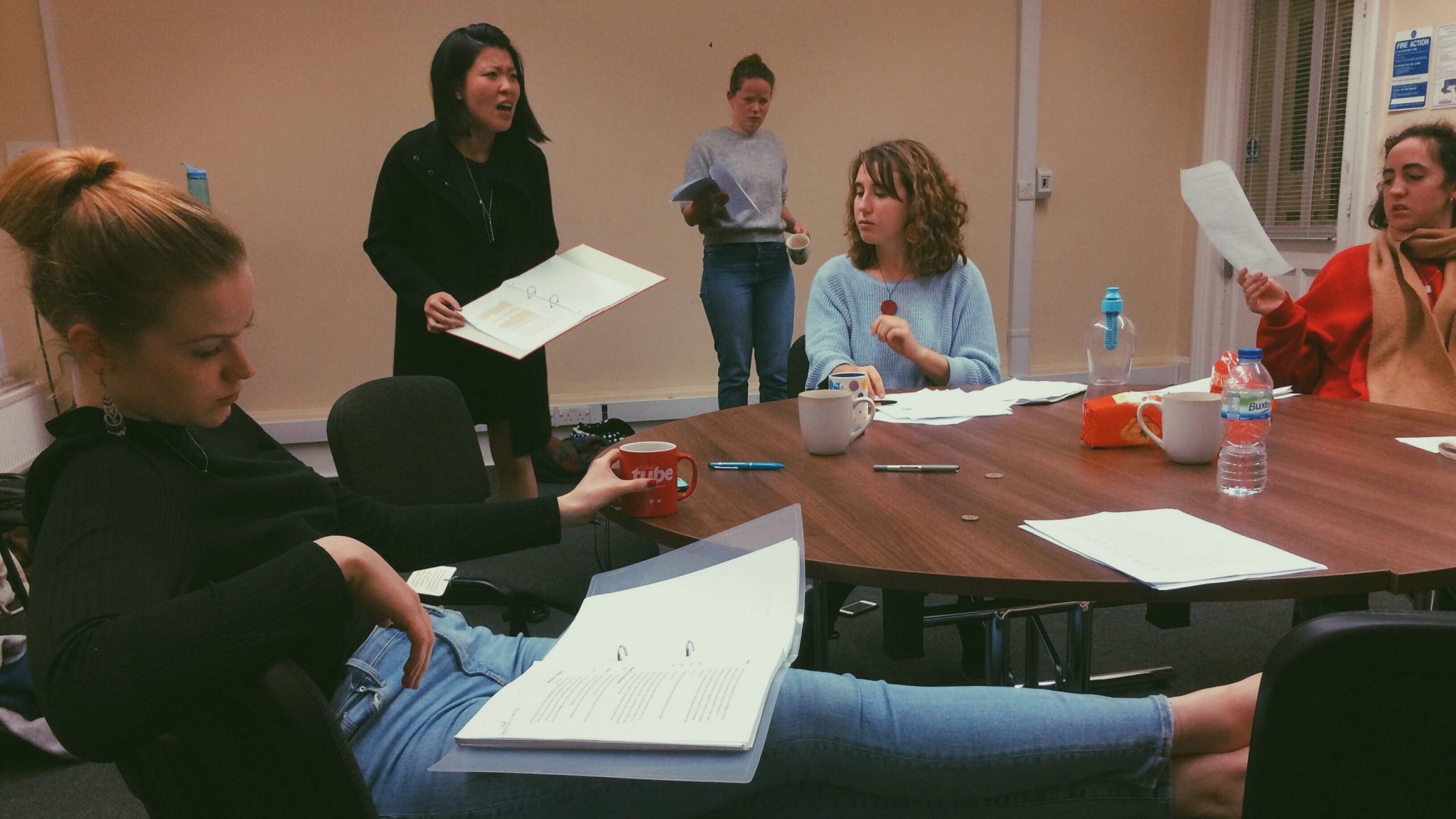When Caryl Churchill wrote Top Girls in 1982, none of the company performing her play this week were born. Yet, after watching them perform extracts from it, my head was buzzing with questions and thoughts about women’s place in society, not only in the Thatcher era, but also today. Katie Cook, who plays the central character, Marlene, describes Top Girls as a “conversation piece”, and it is easy to see why.
Marlene looks from the outside to be a paradigm example of a successful woman, having recently been promoted to the role of managing director of the eponymous employment agency. But at what cost? In the scenes I saw, Marlene’s compassion shone through a ruthlessly professional exterior just once, when Cook cleverly portrayed her character as genuinely sympathetic towards the wife of the man she will now outrank. Once was enough to bring out a tension that seems set to recur throughout the play: female solidarity, and a sense that every woman’s advancement leaves someone else behind. In Marlene’s case, the woman left behind is her sister, Joyce, a character whose complexity is beautifully explored by Eilidh Ross. Joyce’s love for her daughter Angie, which is fierce in more senses than one, seems tempered by the knowledge of a secret, perhaps related to her troubled relationship with her sister.
Heavy subject-matter, you might think. Yet the actors’ energy and commitment to character looks set to make this a fast-paced, vibrant, and constantly-entertaining play, as well as a thought-provoking one. Actors Hannah Patient and Aisling Taylor tell me they particularly enjoy performing a high-energy scene between their two young characters, Angie and Kit, and their versatility certainly shines through here, in a disturbing conversation that veers from childish make-believe to threats of violence that make Angie’s ruthlessness jarringly reminiscent of her Aunt, Marlene. The same versatility will be on display in the first act, which famously features a fantastical dinner-party held by Marlene for famous women of the past, and so will require many of the actors to multi-role as ground-breaking matriarchs from Isabella Bird to Pope Joan.
The vibrancy of the scenes I saw will no doubt be heightened when colourful 1980s costumes, hair, make-up and (of course) music, are added to the equation. Director Adam Radford-Diaper gives a fascinating justification for the decision to go “full ‘80s”, explaining that this cast, a decade younger than most professional companies performing the play, have a unique ability to see Top Girls for the period piece it is. The cast and crew look set to show how the play can remain relevant, without pretending that it is current.
Hopefully, we have moved on from the time when a woman’s only option was to try to find a place in a man’s world. This play promises to make us question how we got here, and how far we still have to go, and to do so with more than a hint of girl power. I for one can’t wait to see the finished production, which is at the Pilch from October 24th.



